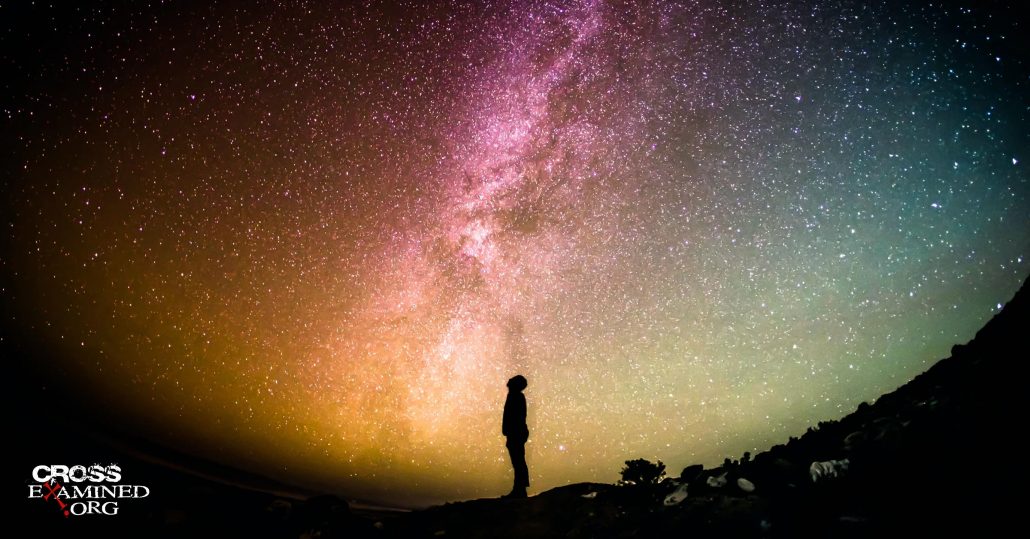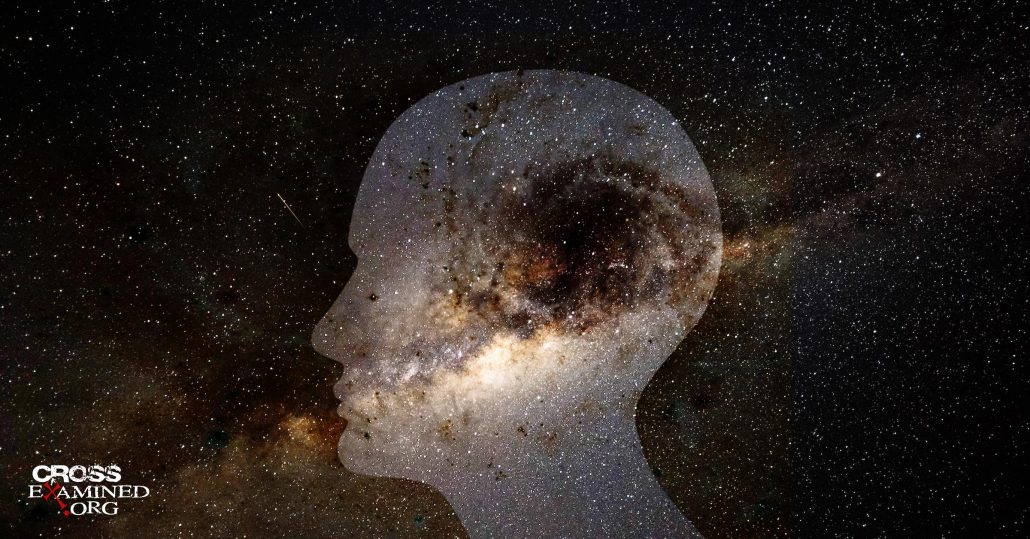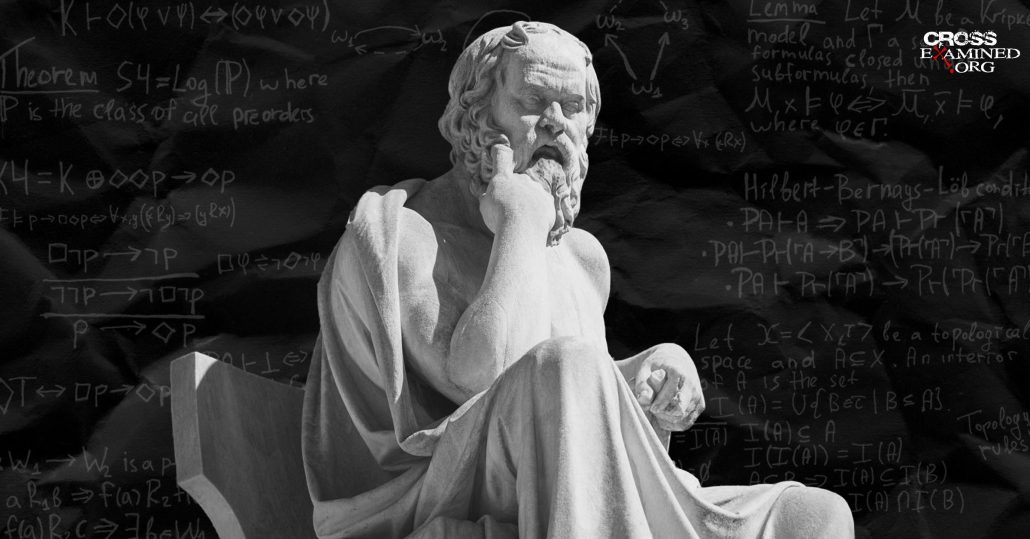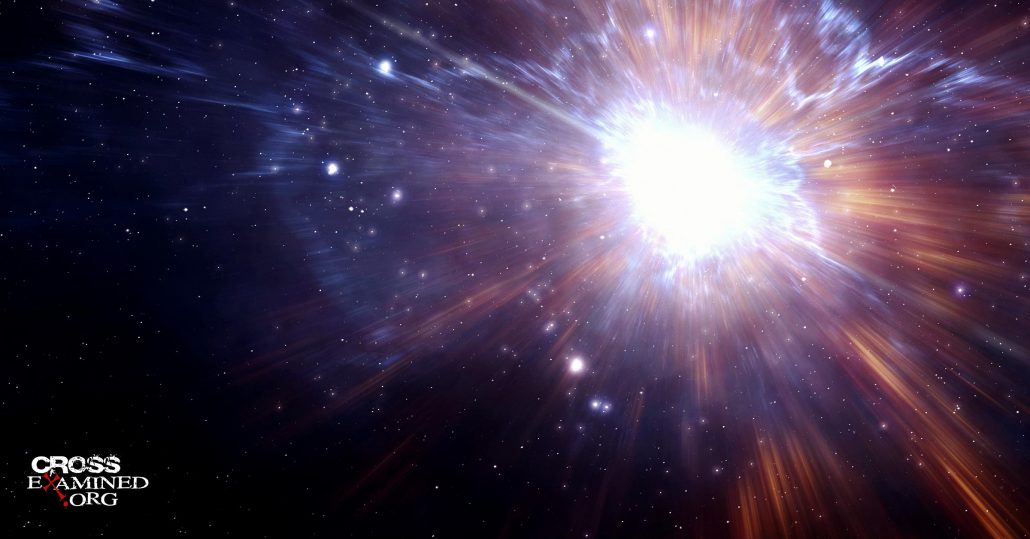One of the most challenging objections to the existence of God is the problem of divine hiddenness. Closely related to the problem of evil, the problem of divine hiddenness asks “Where is God?”; “Why doesn’t God make His existence more obvious?”; “Why does God leave any room for doubt?” Surely God, if He existed, would not need apologists to make the case for His existence — couldn’t He have made it more immediately apparent? Related to these concerns is the problem of unanswered prayer. Why do so many peoples’ prayers go unanswered, often despite years of persistent prayer? The problem is even connected to the problem of evil, since one may ask why God apparently fails to show up to put an end to evil and unjust suffering in our world. These are indeed difficult questions that deserve to be taken seriously and thoughtfully considered.
The Biblical authors also recognized and grappled with divine hiddenness. For example, the Psalmist asked “Why, O LORD, do you stand far away? Why do you hide yourself in times of trouble?” (Ps 10:1). Another Psalm likewise says “Awake! Why are you sleeping, O Lord? Rouse yourself! Do not reject us forever! Why do you hide your face? Why do you forget our affliction and oppression? For our soul is bowed down to the dust; our belly clings to the ground. Rise up; come to our help! Redeem us for the sake of your steadfast love!” (Ps 44:23-26). One could continue in a similar vein for some time. The problem of divine hiddenness is, in my judgment, one of the best arguments against the existence of God. It has its most articulate and erudite defense, to my knowledge, in the work of Canadian philosopher John L. Schellenberg (see his book The Hiddenness Argument — Philosophy’s New Challenge to Belief in God).[1]
The problem is particularly difficult on an emotional level. Schellenberg draws the analogy of a friend describing his parents: “Wow, are they ever great — I wish everyone could have parents like mine, who are so wonderfully loving! Granted, they don’t want anything to do with me. They’ve never been around. Sometimes I find myself looking for them — once, I have to admit, I even called out for them when I was sick — but to no avail. Apparently they aren’t open to being in a relationship with me — at least not yet. But it’s so good that they love me as much and as beautifully as they do!”[2] This analogy should give a sense of the impact of this argument, rhetorically and emotionally.
While it may be admitted that the argument from divine hiddenness is one of the most perplexing issues for the theist to come to terms with, especially emotionally, the real question that needs to be addressed is that of whether it offers sufficient ground to overhaul the powerful cumulative positive reasons to believe that God exists and that He has revealed Himself through Jesus Christ. I will argue in this article that the answer is ‘no’.
A Lack of Obviousness Does Not Mean Poor Evidential Support
Why does God not make His existence more obvious? The first point I will make in response to this question is that God’s existence not being obvious does not entail that it is not well evidentially supported. We know from physics, for example, that a physical object like a table or a chair is comprised of mostly empty space. This is not at all obvious (in fact it would seem to be almost obvious that it is not the case) and yet we have good evidential support that it is so. One may reply that whereas we know scientifically that the chair is mostly comprised of empty space, we nonetheless still live our lives as if though it is not — our day-to-day choices and beliefs are not based on how we scientifically understand things to be, but how we experience them in our daily lives. However, I can think of counter-examples where we do act against what we feel in accord with the available evidence, even when we are putting our lives on the line. For example, despite being a frequent flyer, I get anxious about being on an airplane. Even though I know rationally that flying is the safest way to travel (statistically, your odds of being involved in a fatal plane crash are less than 1 in 12 million), flying – especially in turbulent conditions – just doesn’t feel like it is safe to me. Nevertheless, I frequently overcome my fear of flying by stepping onto an airplane, often for very long distances. In that case, I am literally committing my life to what my rational faculties tell me, and disregarding what my emotions and feelings tell me, because I know that generally my rational faculties are a more reliable gauge of what is actually true than my feelings.
Someone recently asked me why God cannot be more like the force of gravity, which we experience directly. However, while we do have direct experience of the effects of gravity, it is not immediately obvious what causes things to gravitate towards the ground. The law of gravity was not articulated before Isaac Newton (1642-1727). Indeed, in attempting to explain why unsupported bodies fall to the ground, the ancient Greek philosopher Aristotle put forward the idea that objects simply moved towards their ‘natural place’, the center of the earth (which in Aristotle’s cosmology was the center of the Universe), and that objects fall at a speed proportional to their weight. So perhaps gravity is less ‘obvious’ than one might think (though something which nonetheless enjoys strong evidential support). I would argue that the evidence of God is all around us, so we do in a sense experience God in a similar way to how we experience gravity. Just as we observe the effects that gravity has all around us but do not see the gravitational force that actually causes those effects, we also see the many things that God has made all around us, even though we do not see the being who actually caused those things to exist.
One may still object here that it should not take us a lot of work to discover that Christianity is true. Rather, the truth of the gospel, granting what is at stake, should be readily apparent. I shall return to this objection in due course. However, I will note here that I do not think God requires more than it is reasonable for a serious enquirer to give to an issue of this much importance. Some enquirers are better placed than others, and God looks for us to exert ourselves according to the light we have been given. I have heard, for instance, many stories of Jesus revealing Himself to people in dreams and visions in Muslim-majority countries, presumably since those are parts of the world where it is harder for people to otherwise hear the gospel. In the west, we have ample access to the gospel and to the tools needed to do our due diligence in investigating its claims.
I think we have to trust the goodness of God, since presumably God, in his omniscience, knows what every person would have done had they had more evidence — i.e. whether they would have chosen to enter into a relationship with God or to reject Him. We know from plenty of Biblical examples that not everyone who is presented with conclusive evidence for God (whether by miracles, predictive prophecies, or direct manifestations) submits to Him. If God knows that a given individual is not going to enter into a good, lasting relationship with Him, then why would God ensure the person believes? Furthermore, Scripture also indicates that people are judged in accordance with the amount of light they have rejected (e.g. Mt 11:21-22; Jn 12:47-48). Even many contemporary public atheists have essentially said that no amount of evidence could change their mind. For example, Richard Dawkins was asked in a conversation with Peter Boghossian what it would take for him to believe in God. Dawkins said that not even the second coming would be enough evidence. When Boghossian asked him whether any amount of evidence could change his mind. He replied, “Well, I’m starting to think nothing would, which, in a way, goes against the grain, because I’ve always paid lip service to the view that a scientist should change his mind when evidence is forthcoming.” It could, therefore, be seen as an act of mercy for God to withhold from them more evidence if they were going to reject it anyway and thereby bring upon themselves greater judgment. This adds yet further plausible motivation for God not to ensure that everyone had greater access to evidence for His existence, which would thereby render them more culpable. This point has been independently made by Travis Dumsday in a paper in the journal Religious Studies.[3]
This last point may be challenged by the skeptic by pointing to the existence of non-resistant non-believers. As Schellenberg puts it, “If there exists a God who is always open to a personal relationship with any finite person, then no finite person is ever nonresistantly in a state of nonbelief in relation to the proposition that God exists.”[4] However, I would contest that there is such a thing as long-term non-resistant nonbelief. My own view is that the evidence for Christianity is such that anyone who is fully informed and takes it upon himself to impartially examine it — with a heart open toward accepting God as Lord — will, in the long term, come to find Christianity to be true and well supported. In any case, human psychology, particularly at the subconscious level, is so complex that I doubt that it is demonstrable that any nonbeliever is completely nonresistant.
Couldn’t God Have Given Us Stronger Evidence?
A related objection is that it is possible for the evidence for Christianity to have been stronger than it in fact is. Surely, if God existed, He would have given us the strongest possible evidence. However, I do not think that we need expect something that goes beyond perfectly adequate evidence for the serious inquirer. Many atheists are under the mistaken impression that God wants people to believe in Him no matter what they are going to go on and do with that knowledge. It is never contended anywhere in Scripture that it is a commendable thing to believe in God yet reject a relationship with Him. In the Old Testament, the Jews had no doubt that God existed – they had seen many miracles performed before their eyes – and yet they went off time and again into idolatry. Even those who saw Jesus’ miracles before their very eyes didn’t believe in Him (e.g. John 12:37) and wanted to put Him to death – e.g. see the reaction of many after Jesus raised Lazarus (John 11:45-53). The eighteenth century lawyer and Christian thinker Joseph Butler (1692-1752), in his Analogy of Religion, put forward the idea that our time on earth is a period of probation.[5] For some people in particular the form that that probation may take is a form of testing whether they are willing to engage in the intellectual inquiry that is necessary to give themselves a fair examination of the evidence.
An objection I sometimes encounter is that, if God exists, then there should not be any reasonable arguments against His existence at all. However, this complaint, it seems to me, boils down essentially to the dubious claim that, if Christianity is true, there cannot be any puzzles that require mental effort to work out. Another point to bear in mind is that many people are not even presented with these as puzzles that seriously compromise the evidence that they already have. For some people, working through the problem of evil is part of their probation here in this life. And if they are diligent, they will work through it. Even if they cannot find adequate and satisfying answers to why there exists so much suffering in the world, they can learn to trust in the goodness of God, and find in the problem of evil insufficient ground to overturn the positive confirmatory case for Biblical theism. Either they will find adequate answers, or they will find enough positive evidence to make the fact of their inability to find those answers not, in the end, sufficient to undermine their faith.
Why Does God Require of Us So Much Work?
I often hear the objection that in order to really be compelled by the evidence for Christianity, one has to take a very deep dive into esoteric scholarship. Surely, if God were real, the truth of the gospel should be a lot more self-evident. Indeed, this is actually also an objection to my epistemology that I frequently encounter from some Christians as well – namely, that my hard line evidentialism implies that Christians cannot be rational in believing the gospel unless they become an academic and invest hundreds of hours in the study of the evidences for Christianity. Since not everyone has the aptitude and access to resources necessary to undertake such deep study, so the objection goes, this cannot be God’s normative way of imparting rational confidence to believers that the gospel they have entrusted is indeed true.
However, I want to be careful here to draw a distinction between what I call an explicit rational warrant and what can be called an implicit, or tacit, rational warrant for Christian faith. Every Christian, I would argue, can have at least an implicit rational warrant for believing that God exists and that He has revealed Himself in the Bible. Romans 1:20 teaches that God’s “invisible attributes, namely, his eternal power and divine nature, have been clearly perceived, ever since the creation of the world, in the things that have been made. So they are without excuse.” The Greek word translated “without excuse” in this verse is ἀναπολογήτους (literally, “without an apologetic”). Furthermore, the Psalmist wrote that “The heavens declare the glory of God, and the sky above proclaims his handiwork,” (Ps 19:1). I do not think the Scriptures are envisaging people having to do PhDs in astrophysics or molecular biology, or master probability theory, in order to see the hand of God revealed in nature. Every time we step outdoors and behold the things that God has made – especially living organisms – we intuit that things have been made for a purpose, even if we couldn’t explicitly express why that is the case. Indeed, throughout history, the vast majority of people who have lived have been theists.
This implicit or inarticulate sense of the case for theism explains, I think, why some people come to believe that there must be a God when they hold their newborn child in their arms for the first time – they see the incredible design and elegance that is inherent in the process of development from a fertilized egg to a new born infant. They recognize, even if only implicitly and intuitively, that this is a process that required a high level of foresight to bring about – since it involved a high-level objective – which points to the involvement of a conscious mind in the programming of developmental pathways.
Those with an implicit rational warrant for belief in God may not be able to hold their own in a debate with a learned atheist scholar. This is why we hear so many ill-formulated attempted arguments for God that are along the right lines but not sufficiently nuanced to pass for sound argumentation. But I would argue that they nonetheless have sufficient rational warrant for their belief that God exists. Over time, as a believer matures, I would argue that the rational warrant for belief that was in the first place implicit should become more and more explicit and articulate.
In fact, even a biologist as staunchly atheistic as Francis Crick (co-discoverer with James Watson of the double-helical structure of DNA) said that “Biologists must constantly keep in mind that what they see was not designed, but rather evolved,”[6] Richard Dawkins similarly said at the beginning of The Blind Watchmaker that “Biology is the study of complicated things that have the appearance of having been designed with a purpose,”[7] Dawkins then spends the remainder of the book trying to argue, in my opinion unsuccessfully, that this design is not real but only apparent.
People also have a moral compass and have an implicit sense that there are objective moral norms and duties in the world – something which makes much better sense if theism is true than if atheism were true. Besides general revelation (i.e. what may be known about God from the created Universe), this sense of objective moral norms and duties also provides people with an additional witness, even if only implicit, to the existence of God.
People can have a similarly implicit rational warrant for believing that God has revealed Himself in the Bible. This is not something that you need a PhD in Biblical Studies to discover. I think for many believers they read through the Bible and encounter the cumulative force of various prophetic passages like Isaiah 53, recognizing Jesus in them. They might not be able to express the argument explicitly enough to debate a learned Rabbi. But they nonetheless, I would argue, have an implicit rational warrant. Likewise, they might read through the New Testament accounts and perceive implicitly some of the hallmarks of verisimilitude, such as the criterion of embarrassment, or unexplained allusions, or undesigned coincidences. They might begin to recognize the evidential value of the testimonial evidence we have in the New Testament in regard to events such as the resurrection. Many of those categories of evidence are actually not at all hard to grasp and may be perceived through common sense.
This is what, I suspect, many Christians in fact are talking about when they say that they just know that Christianity is true. I think often-times Christians can confuse an implicit rational warrant for belief in Scripture (which is based on evidence) with some sort of mystical inner-witness that Christianity is true. For example, one may have an inarticulate sense of the power of the whole case for Christianity without realizing that it is, in fact, a rational response to a cumulative case argument.
So, where am I going with this? I would argue that discovering evidence for God is not actually that hard. Rather, it has been made artificially hard by bad scholarship and poor standards that insist that the simplest answer cannot actually be the correct answer. This is true in science as well as Biblical scholarship. A lot of the ink spilled on these issues, therefore, is ink spent answering really bad arguments that should never have gotten traction to begin with but, because they provided an excuse for unbelief, they have become widely accepted and highly esteemed, even among academics who should know better.
Where is God?
A common objection to God’s existence is that, if the God of Scripture exists, then He would be reasonably expected to still be working in the world today. The skeptic reasons, then, that the failure to observe God working in a tangible and detectable way in the world today should be taken as not merely evidence against Christianity but, more than that, as a defeater of any evidence that may be offered from ancient documents. I wonder though what sort of evidence the skeptic would accept as sufficient reason to think that God is still working in the world in a tangible way. Would it need to be a direct personal experience, or would he or she accept reliable testimony from others that they had the sort of direct personal encounter that he or she is seeking for?
Testimony, popular atheist protestations to the contrary notwithstanding, is a valid form of evidence. When any person makes a claim to have witnessed an event, there are three – and only three – categories of explanation for that claim. Those are (a) they deliberately set out to deceive; (b) they were honestly mistaken; and (c) their claim was actually correct. I think those broad categories of explanation are mutually exhaustive (though I can imagine some situations in which they might be at work in combination). As either one of the two former claims becomes less plausible as a result of the evidence one adduces, this leads to a necessary redistribution of the probabilities, leading to option (c) becoming more probable than it was previously. This, then, provides evidence confirming scenario (c). The greater the extent to which options (a) and (b), in any given case, are disconfirmed by the evidence, the greater support is enjoyed by option (c). This method can be applied to modern claims just as well as it can be applied to ancient ones. An individual’s track record of habitual trustworthiness and reliability can count as evidence against the hypothesis that they were deliberately setting out to deceive. The plausibility of the hypothesis that they are honestly mistaken will depend on the particulars of the case.
I am not talking here about testimonies of healing that are easy to explain by some kind of sensory illusion or sleight of hand, or that plausibly would have gotten better anyway. I am talking about cases that seem to defy naturalistic explanation. Dr. Craig Keener has compiled a two volume set on claims of such miraculous occurrences.[8] To take one example, he discusses a friend of his, Leo Bawa, the former director of research at Capro, a prominent Nigerian missions movement. One intriguing miracle (of several) that he told Dr. Keener about is that “among some tribes in Adamawa and Taraba State, I had instances where no interpreter was available and the Lord gave me understanding and ability to speak the people’s languages, a feat I never performed before or since after that incident.”[9] Keener notes that “Other accounts of this phenomenon exist, though many of these are secondhand”[10]. In a footnote, Dr. Keener elaborates[11],
“I have direct accounts in which others recognized the languages from Dr. Derek Morphew (Nov. 12, 2007); Pastor David Workman (Nov. 12, 2007); Pastor David Workman (April 30, 2008); Dr. Medine Moussounga Keener (Aug. 12, 2009, secondhand about Pastor Daniel Ndoundou); my student Leah Macinskas-Le (April 25, 2010, regarding her Jewish mother becoming a believer in Jesus because she understood the Hebrew prayer of an uneducated pastor’s prayer in tongues); Del Tarr, personal correspondence, Sept. 30, 2010 (noting three cases he has witnessed, including a recent one involving Korean; cf. also Oct. 5, 6, 2010).”
I have heard about this sort of phenomenon from others as well, and it does not seem to be the type of thing that could be explained naturalistically. I trust Dr. Keener and I presume that he trusts his sources since these are personal contacts of his (the fact that the phenomenon is multiply attested helps as well). So, it seems unlikely in these cases that Keener’s sources are all lying to him, and these also seem to be phenomena about which it would be quite hard to be honestly wrong.
Now, one might object at this point that in this case the testimony is coming from someone whom they do not know personally. With public figures such as Dr. Craig Keener, though, one can, to a certain degree, evaluate whether this is someone who is likely to make stuff up. This is true especially of high-profile scholars such as Dr. Keener since one can get a sense, through careful reading of their academic work, whether they are careful and reliable in their reportage of information. Dr. Michael Brown (another public figure and Biblical scholar) has also told me (on public record) about similar events to those described above, both that he was a witness to and testimonies of friends of his (including one individual, who was a cessationist and therefore not predisposed already to believe in miraculous events, who reported the incident to Dr. Brown in shock). The fact that this sort of occurrence is multiply attested by different credible sources leads me to think that something miraculous is indeed going on here. I chose this particular category of miracle claim as an illustrative example since this is one type of phenomenon that seems to defy naturalistic explanation and also seems to be something that it would be very difficult to be honestly wrong about having witnessed.
There are also accounts from sober-minded people whom I trust of radical experiences of the presence of God (e.g. see this one from Paul Washer).
My question, then, to the skeptic is, as I said above, is the only type of evidence that may be admitted for God acting in the world today a direct personal encounter, or would one be prepared to accept testimonial evidence from other people? If one is only prepared to accept a direct personal encounter but not testimonial evidence, I would argue that that is not a rational approach. On the other hand, if one is willing to accept testimonial evidence that such encounters do indeed exist, then I would ask what the qualitative difference is between the testimonial evidence that is available in the present day and that which is present in the 2000 year old documents we know as the New Testament. Presumably the same principles of evaluation would pertain to those.
What About Unanswered Prayer?
As for unanswered prayer, this is a recurring thing that comes up in my conversations with ex-Christians – that is, that answered prayers do not seem to be distinguishable from chance and the act of prayer often feels like talking to the wall or the ceiling. This feeling during prayer is something I can relate to myself experientially, so it is not simply a theoretical issue for me. If Christianity is true, however, this entails that prayer is legit. Our belief in prayer should not be predicated on our evaluation of our feelings while praying or on our later examination of the result of prayer. To do this is not to evaluate prayer in a manner consistent with what Scripture teaches us concerning prayer. Nowhere in Scripture are we promised that prayer will be accompanied by an internal sense of being heard. Rather, prayer is supposed to be accompanied by a conviction that our prayers are heard in Christ, since it is through Him that we have access to God.
We are also not in a position to determine whether something is providentially caused by God or not. The Biblical view is not to look around for obviously miraculous causes and give God credit for those only, while presuming non-miraculous events would have happened anyway. Rather, we should view God as sovereign and credit Him with providential control over all things. So greatly has a twenty-first century naturalistic bias permeated our thinking that we in fact often fail to give God sufficient credit for His daily providence.
Prayer, then, should not be evaluated on the basis of a mystical sensation of being heard, or our impression of miraculous divine action in response to prayer. To do so is to judge prayer by a criterion which we were never given by God. How, then, should we evaluate the validity of prayer? We should evaluate it by the validity of the work of Christ and our faith in Him. If we are trusting in Christ then we have true and valid prayer. There is more that can be said, of course, about limiting our appreciation of prayer to when God says “yes” to a request, but my point here is simply that evaluating prayer by these standards is a problem from the start. Our belief in prayer stems from our beliefs in Christ and the two should never be separated. If we believe in Christ because of the evidence for His resurrection, then we are being inconsistent to fail to believe in prayer.
Another thing I will say about prayer is that there is, I think, what I would call an epistemic asymmetry when it comes to prayer. An epistemic asymmetry is where making an observation might be strong confirmatory evidence for your hypothesis but not making that observation is only weak, or even negligible, evidence against it. To take an illustration, imagine I see a spider crawling along my desk as I sit here and type this article. That would be excellent evidence for the hypothesis that, somewhere in my apartment, there is a spider. But suppose I do not see a spider in front of me. That is only very weak, even negligible evidence, that there is no spider in my apartment (since there are many other places where a spider might be). That is an example of what I call epistemic asymmetry.
So, how does this relate to prayer? I would argue that specific answers to prayer are relatively strong confirmatory evidence but apparently unanswered prayer is only comparatively weak disconfirmatory evidence. The reason for this is that there could be many explanations for why your prayer went unanswered. Perhaps God, in his omniscience, said ‘no’ because He knows (better than you do) that what you asked for is not good for you. Or perhaps there is unconfessed sin in your life. Both the Old and New Testaments teach that sin can hinder our prayer life. For example, Proverbs 28:9 says, “If one turns away his ear from hearing the law, even his prayer is an abomination.” 1 Peter 3:7 says, “Likewise, husbands, live with your wives in an understanding way, showing honor to the woman as the weaker vessel, since they are heirs with you of the grace of life, so that your prayers may not be hindered.” There could thus be any number of reasons why your prayer was not answered and it is not necessarily particularly improbable that, if Christianity is true, many of your prayers will not be answered in the way that you desired. We have plenty of Biblical examples of prayers going unanswered. David’s prayer for the life of his illegitimate child by Bathsheba was unanswered (or answered negatively, depending on how you prefer to classify it). The same is true of Jesus’ prayer that the cup might pass from him in the Garden of Gethsemane. In the latter example, Jesus’ prayer included the qualifier “If it is possible…” And the answer was, “No, that can’t happen.” It would probably be classified as the most spectacular unanswered prayer of all time by the atheists, except for what happens afterward with Jesus being raised from the dead.
The answered prayers, on the other hand, depending on their level of specificity, can in principle be relatively strong confirmatory evidence for Christianity. Even if you cannot point to specific examples in your own life, there are writings by other people that would potentially document such examples (presuming them to be accurately reported). For example, George Müller (1805-1898) was a Christian evangelist and the director of the Ashley Down orphanage in Bristol, England. There was a time when the orphanage at Bristol had run out of bread and milk.[12] Müller was on his knees praying for food when a baker knocked on the door to say that he had been unable to sleep that night, and somehow knew that Müller would need bread that morning. Shortly after, a truck carrying milk broke down, directly in front of the orphanage door. There was no refrigeration. The driver begged Müller to take the milk, which would go bad if it were not consumed. It was just enough for the 300 children in the orphanage.
Conclusion
To conclude, while the problem of divine hiddenness is, on first inspection, a thorny issue, further analysis reveals it to be not as weighty a concern as it first appeared. Given the existence of plausible explanations of divine hiddenness (e.g. God’s knowledge, in His omniscience, of how different individuals will respond to the evidence of His existence), I would argue that the problem of divine hiddenness, though a complete answer eludes us, is not sufficient to overturn the extensive and varied positive confirmatory evidences of Christianity.
Footnotes
[1] John L. Schellenberg, The Hiddenness Argument (Oxford: Oxford University Press, 2015).
[2] Ibid., 41-42.
[3] Travis Dumsday, “Divine hiddenness as divine mercy”, Religious Studies 48, no. 2 (2012): 183-198.
[4] John L. Schellenberg, The Hiddenness Argument (Oxford: Oxford University Press, 2015), 53.
[5] Joseph Butler, The Analogy of Religion: Natural and Revealed to the Constitution and Course of Nature (Oxford: The Clarendon Press, 1897).
[6] Francis Crick, What Mad Pursuit: A Personal View of Scientific Discovery (New York: Basic Books, 1990), 138.
[7] Richard Dawkins, The Blind Watchmaker: Why the Evidence of Evolution Reveals a Universe Without Design (New York: W.W. Norton, 1986), 4.
[8] Craig S. Keener, Miracles: The Credibility of the New Testament Accounts, Volume 1 (Michigan: Baker Academic, 2011).
[9] Ibid., 328.
[10] Ibid.
[11] Ibid., 1769.
[12] Roger Steer, George Müller: Delighted in God (Rosshire: Christian Focus, 1997), 131.
Recommended resources related to the topic:
What is God Really Like? A View from the Parables by Dr. Frank Turek (DVD, Mp3, and Mp4)
What is God Like? Look to the Heavens by Dr. Frank Turek (DVD and Mp4)
How Philosophy Can Help Your Theology by Richard Howe (DVD Set, Mp3, and Mp4)
I Don’t Have Enough Faith to Be an Atheist (Paperback), and (Sermon) by Norman Geisler and Frank Turek
Dr. Jonathan McLatchie is a Christian writer, international speaker, and debater. He holds a Bachelor’s degree (with Honors) in forensic biology, a Masters’s (M.Res) degree in evolutionary biology, a second Master’s degree in medical and molecular bioscience, and a Ph.D. in evolutionary biology. Currently, he is an assistant professor of biology at Sattler College in Boston, Massachusetts. Dr. McLatchie is a contributor to various apologetics websites and is the founder of the Apologetics Academy (Apologetics-Academy.org), a ministry that seeks to equip and train Christians to persuasively defend the faith through regular online webinars, as well as assist Christians who are wrestling with doubts. Dr. McLatchie has participated in more than thirty moderated debates around the world with representatives of atheism, Islam, and other alternative worldview perspectives. He has spoken internationally in Europe, North America, and South Africa promoting an intelligent, reflective, and evidence-based Christian faith.
Original Blog Source: https://cutt.ly/qke1w0u










